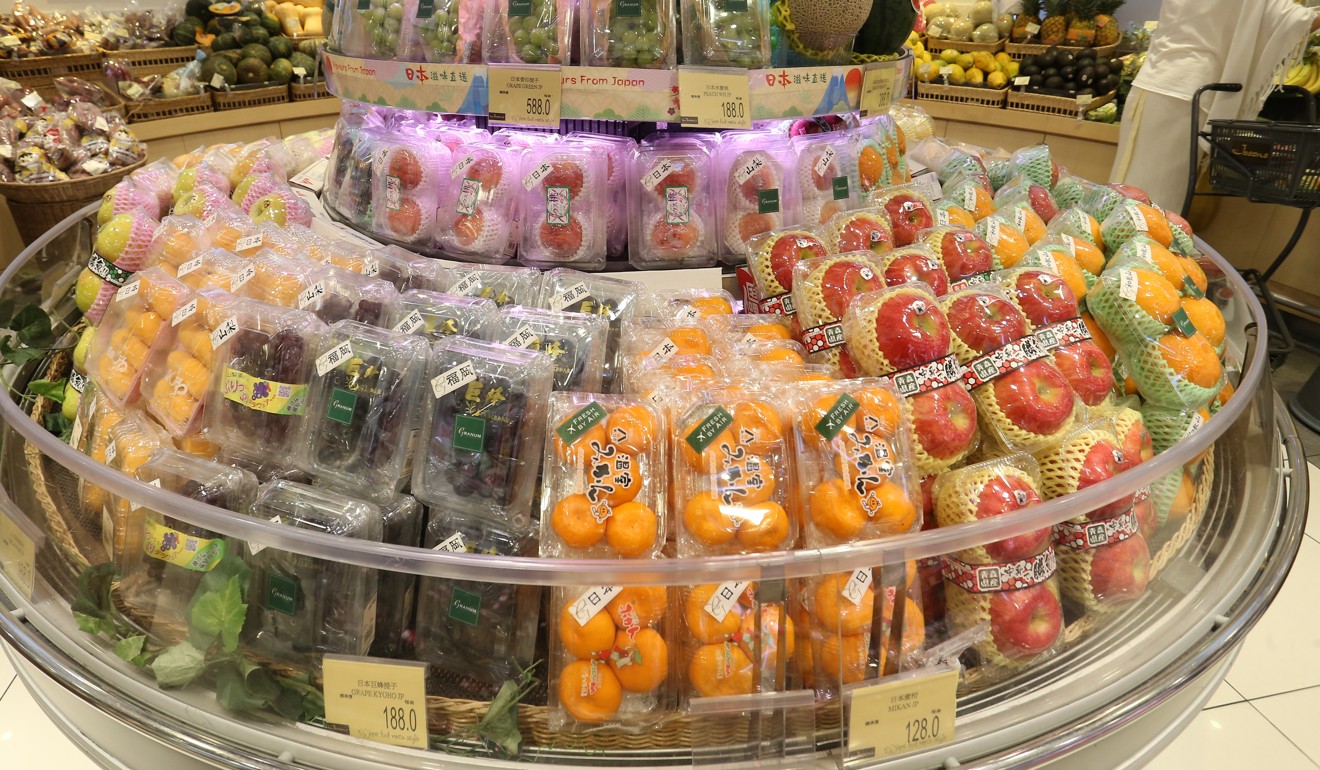
Hong Kong should ease post-Fukushima ban on some Japanese food imports, government says
Centre for Food Safety plans to resume imports of fruit, vegetables, milk and dairy from four prefectures neighbouring stricken area, as long as they pass radiation tests
The suggestion of relaxing the seven-year-old ban was based on a scientific assessment of food safety, said a government source, who said trade was not the main concern.
In the wake of the 2011 earthquake and nuclear meltdown in Fukushima, Hong Kong banned the import of fresh produce and milk from the prefecture and four nearby prefectures – Chiba, Ibaraki, Tochigi, and Gunma – while also testing fresh produce from the rest of the country for radiation. Hong Kong has been the top market for Japanese food for more than a decade, taking 26 per cent of the country’s food exports in 2016, according to Japan’s agriculture ministry.
“The proposed amendment is made based on the scientific data on food safety,” a government source said. “Trade consideration with Japan is not a concern that should came before food safety.”
But he added that Hong Kong should also consider measures taken elsewhere when issuing an import ban, as the city is a member of the World Trade Organisation. Many countries which had similar bans – including Canada, Australia, the United States and Singapore – had lifted them totally or partially in recent years, the report said.

The proposal will be discussed by a Legco panel on June 12, and can be gazetted and implement once it gets lawmakers’ approval.
But legislator Helena Wong Pik-wan disagreed that the ban should be relaxed at all.
“There is no food shortage in Hong Kong and there is no urgency to relax the ban,” she said. “The government should have public health as the foremost consideration, instead of putting it at unnecessary risk.”
There is no food shortage in Hong Kong and there is no urgency to relax the ban
She expressed worries that contamination in Japan is not over, as it can take up to 30 years for radiation to wear off. She pointed out that mainland China, Taiwan and South Korea had maintained their bans.
Since the ban came in, the centre has tested 490,000 food samples from Japan and found low radiation levels in 46. The most recent tainted sample was found in September 2016.
Japanese health officials said more than 2 million food samples had been collected in the country for radiation testing by early March, and most of the 1,200 found with unacceptable radiation levels were taken before March 2013, nearly 60 per cent of them from Fukushima.
Secretary for Food and Health Professor Sophia Chan Siu-chee said on Tuesday that local authorities would implement two levels of gatekeeping to ensure the safety of food from the radiation-affected prefectures once imports resume.
Food products from the four prefectures would have to meet Japanese requirements to get export certificates, which Hong Kong officials would check. The centre would then scan all Japanese food products, not just those from the affected prefectures, for radiation.

